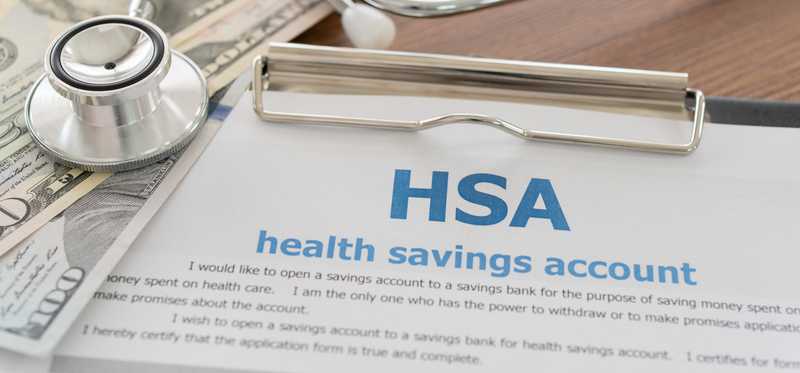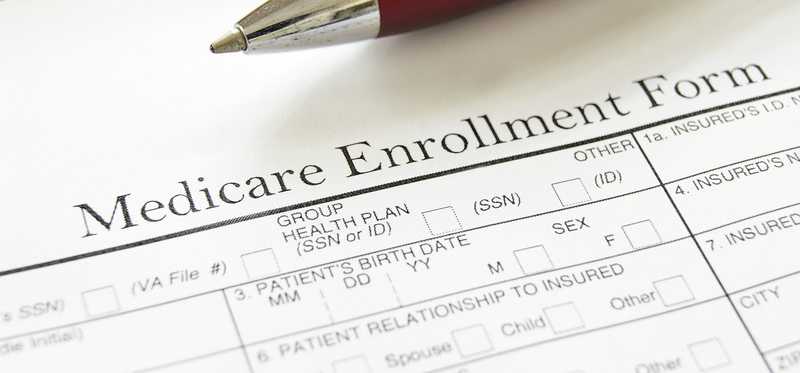15 Things You Should Know About HSAs in 2023

15 Things You Should Know About HSAs in 2023
Stay up-to-date on health savings accounts
Healthcare is an expense that never goes away. If anything, your healthcare costs are likely to climb as you age. That's why it's important to save well for it, and a health savings account, or HSA, could be your ticket to doing just that. Here are some important HSA rules you should know about that will apply next year.
5 Stocks Under $49
Presented by Motley Fool Stock Advisor
We hear it over and over from investors, "I wish I had bought Amazon or Netflix when they were first recommended by The Motley Fool. I'd be sitting on a gold mine!" It's true, but we think these 5 other stocks are screaming buys. And you can buy them now for less than $49 a share! Click here to learn how you can grab a copy of "5 Growth Stocks Under $49" for FREE for a limited time only.
Previous
Next

1. Contribution limits are increasing for self-only coverage
Those who are funding an HSA on their own behalf this year can contribute up to $3,650. Come 2023, that limit will rise to $3,850. Since HSA contributions go in tax-free, it pays to try to max them out if you can.
Previous
Next

2. Contribution limits are increasing for family coverage, too
If you're saving in an HSA at the family level, you can put up to $7,300 into your account this year. That limit is increasing to $7,750 in 2023. If you can meet it, you'll shield even more income from taxes.
Previous
Next

3. Catch-up contributions are staying the same
Right now, those eligible for a catch-up contribution to an HSA can put in an extra $1,000. That catch-up amount is holding steady at $1,000 for 2023. And remember, you don't need to be "behind" on HSA contributions to take advantage of the catch-up option. You just need to be the right age.
Previous
Next

4. Catch-up contributions kick in at an older age than IRAs and 401(k)s
With an IRA or 401(k) plan, you can start making catch-up contributions to your account beginning at age 50. With HSAs, you can't do so until age 55. Don't confuse those rules, as overfunding your HSA could have tax consequences.
Previous
Next

5. You'll need a higher deductible to qualify
If you have self-only coverage, a deductible of $1,400 or more renders you eligible for an HSA this year. Come 2023, that minimum deductible is rising to $1,500. Meanwhile, for families, the minimum deductible for HSA eligibility this year is $2,800. Next year, that limit rises to $3,000.
5 Stocks Under $49
Presented by Motley Fool Stock Advisor
We hear it over and over from investors, "I wish I had bought Amazon or Netflix when they were first recommended by The Motley Fool. I'd be sitting on a gold mine!" It's true, but we think these 5 other stocks are screaming buys. And you can buy them now for less than $49 a share! Click here to learn how you can grab a copy of "5 Growth Stocks Under $49" for FREE for a limited time only.
Previous
Next

6. The maximum out-of-pocket limits are changing, too
If you have self-only coverage, you can qualify for an HSA this year with a $7,050 maximum out-of-pocket limit. Next year, that limit goes up to $7,500. For family-level coverage, the maximum out-of-pocket limit will rise from $14,100 to $15,000.
Previous
Next

7. It pays to max out an HSA even if your medical costs tend to be minimal
You may be fairly young with limited healthcare expenses. But it still pays to pump as much money as you can into an HSA. Those funds never expire, so you can carry your health-related savings into retirement and take withdrawals when your medical bills might start soaring.
ALSO READ: How Much Will Healthcare Cost in Retirement? Prepare to Be Shocked
Previous
Next

8. If you're signing up for Medicare, you'll need to stop your HSA contributions
Medicare eligibility begins at age 65. If you'll be signing up for Medicare next year, it's important to halt HSA contributions. You're not eligible to fund an HSA once your Medicare coverage begins.
Previous
Next

9. You can use your HSA funds to cover Medicare expenses
You can't contribute to an HSA once you're enrolled in any part of Medicare. But you can use the money in your HSA to cover Medicare expenses. These include deductibles, premiums, and co-pays.
Previous
Next

10. You can use HSA funds for long-term care insurance premiums
It's a big myth that Medicare will cover the cost of long-term care. Generally, that care is considered custodial in nature, which Medicare won't pay for. That's why it pays to secure long-term health insurance. And if you have an HSA, you can use that money to pay those insurance premiums.
5 Stocks Under $49
Presented by Motley Fool Stock Advisor
We hear it over and over from investors, "I wish I had bought Amazon or Netflix when they were first recommended by The Motley Fool. I'd be sitting on a gold mine!" It's true, but we think these 5 other stocks are screaming buys. And you can buy them now for less than $49 a share! Click here to learn how you can grab a copy of "5 Growth Stocks Under $49" for FREE for a limited time only.
Previous
Next

11. You might snag more tax breaks with an HSA than any other savings plan
HSAs are triple tax-advantaged. Funds go in tax-free, investment gains are tax-free, and withdrawals are tax-free, as long as they're used for qualified medical expenses. Other tax-advantaged plans, like IRAs and 401(k)s, don't offer the same number of tax benefits.
Previous
Next

12. You can fund an HSA if your plan qualifies, even if your employer doesn't offer one
You may be able to sign up for an HSA through your employer. But if the company you work for doesn't offer one, worry not. As long as you meet the deductible and maximum out-of-pocket limit requirements, you can open and fund an HSA on your own.
Previous
Next

13. Your employer might contribute HSA funds on your behalf
Just as some employers put money into workers' 401(k)s, so too do some contribute to their HSAs. Employer contributions to an HSA are not considered taxable income. However, they do count toward your annual contribution limit -- whereas 401(k) matching dollars don't count toward your annual contribution limit.
Previous
Next

14. You generally can't fund an HSA and an FSA at the same time
You may have access to both an HSA and an FSA (flexible spending account) through your job. But generally, you can't participate in both accounts the same year. The only exception is if you have a limited-purpose FSA that only covers certain expenses.
Previous
Next

15. If you qualified for an HSA in 2022, that doesn't automatically make you eligible in 2023
Health plans can change from year to year. If you're currently participating in an HSA, that doesn't automatically mean you'll be eligible for one in 2023. You'll need to check your coverage to see if it's compatible with an HSA.
5 Stocks Under $49
Presented by Motley Fool Stock Advisor
We hear it over and over from investors, "I wish I had bought Amazon or Netflix when they were first recommended by The Motley Fool. I'd be sitting on a gold mine!" It's true, but we think these 5 other stocks are screaming buys. And you can buy them now for less than $49 a share! Click here to learn how you can grab a copy of "5 Growth Stocks Under $49" for FREE for a limited time only.
Previous
Next

Read up on HSAs
Funding an HSA could put you in a great position to lower your tax burden and sock plenty of money away for healthcare expenses. If you're not so familiar with HSAs, do yourself a favor and learn more. And even if you already have an HSA, it's important to stay apprised of changes so you know what to expect and how to best manage your account.
The Motley Fool has a disclosure policy.
Previous
Next
Invest Smarter with The Motley Fool
Join Over Half a Million Premium Members Receiving…
- New Stock Picks Each Month
- Detailed Analysis of Companies
- Model Portfolios
- Live Streaming During Market Hours
- And Much More
READ MORE
HOW THE MOTLEY FOOL CAN HELP YOU
-
Premium Investing Guidance
Market beating stocks from our award-winning service
-
The Daily Upside Newsletter
Investment news and high-quality insights delivered straight to your inbox
-
Get Started Investing
You can do it. Successful investing in just a few steps
-
Win at Retirement
Secrets and strategies for the post-work life you want.
-
Find a Broker
Find the right brokerage account for you.
-
Listen to our Podcasts
Hear our experts take on stocks, the market, and how to invest.
Premium Investing Services
Invest better with The Motley Fool. Get stock recommendations, portfolio guidance, and more from The Motley Fool's premium services.